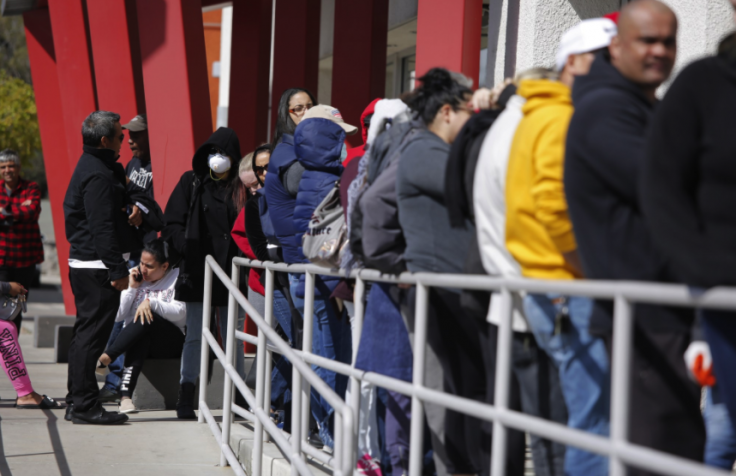Several Washington residents are being asked to repay unemployment benefits received during the pandemic as part of the Pandemic Unemployment Assistance (PUA) program, as reported by the Seattle Times.
According to the report, Sonja Knudson, a substitute teacher with both Seattle Public Schools and Methow Valley School District, was asked to repay the $8,350 she received from the Employment Security Department (ESD) in jobless benefits last spring, citing an overpayment.
The agency said that if she failed to make the payment it would either garnish her paycheck or deduct it from her tax refund. Knudson is one of thousands of Washington residents who have been notified by ESD that their unemployment benefits were either being changed, suspended or even reduced — and, in some cases, had to be repaid in its entirety.
"I have no idea what to do," wrote one user on Reddit last week. "I've used this money for groceries, rent, utilities, and books for college and I need to keep using this money until I get a job."
What is PUA?

The Pandemic Unemployment Assistance (PUA) program is one of the federal CARES (Coronavirus Aid, Relief, and Economic Security) Act that provides relief to workers who have lost their job due to the pandemic but were in categories that included gig workers or part-timers, that typically are not eligible for regular state unemployment.
Since the onset of the pandemic in March, ESD has paid out more than $1 billion in PUA funds to just over 2,82,000 claimants, or roughly one in four Washington residents who have been unemployed during the pandemic.
What Went Wrong?
If PUA beneficiaries became eligible for state unemployment insurance, they end up losing their eligibility under PUA and have to apply for regular unemployment. This could happen, for instance, if ESD received updated information from a former employer showing that a PUA beneficiary had actually worked enough hours to become eligible for regular state benefits.
In late October, ESD started notifying around 26,000 PUA claimants that they needed to file claims for regular unemployment benefits but only half of the claimants responded.
Since the beneficiaries were now technically ineligible for PUA benefits, but had not filed for state benefits, some saw their benefit payments stop while others were asked to repay PUA benefits they had already received.
Some who filed a new claim for regular unemployment benefits found that their new state-sponsored benefit would be much less than what they were getting under PUA as PUA benefits are simply higher than regular state benefits, especially for claimants with lower incomes.
The difference in the benefit amounts meant some of the beneficiaries have to pay back some of their PUA benefits. That's because, depending on when their eligibility changed, they may have been technically ineligible to receive those higher PUA benefits.
ESD Officials Say The Problem is 'Temporary'
According to ESD officials, the problem is "temporary" and is arising as a result of federal regulations requiring the agency to transition some recipients of the benefits from the federal relief program to the regular state unemployment program.
The agency said many of the affected individuals can restart suspended benefits and avoid repayment simply by filing a new claim with ESD. The ESD also temporarily paused sending notifications to claimants about the changes "due to the confusion some claimants had" and has clarified instructions on the ESD website, spokesperson Nick Demerice said Monday.
The agency also noted that the state's recent spike in jobless claims, the highest reported by any state, was also due to thousands of workers filing those new claims.









